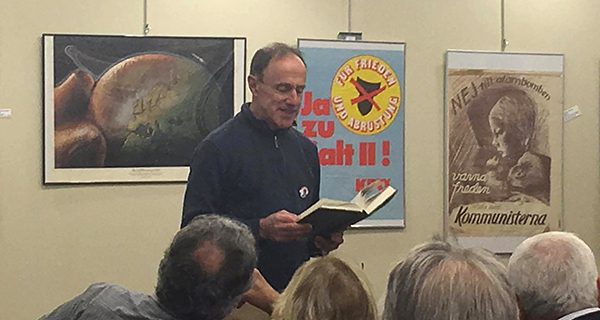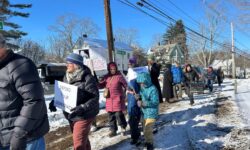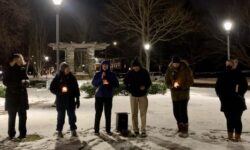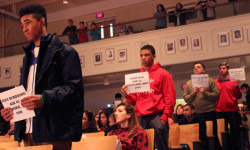[ccfic caption-text format="plaintext"]
By Katrina Margolis
Hometown Weekly Reporter
Everybody knows some version of Bobby Kennedy, even if it’s just the fact that he was brother to John, and assassinated in 1968. However, Larry Tye’s presentation on the senator drew on unpublished memoirs, unreleased government files, and boxes of papers that had been under lock for the past forty years to reveal the true arc of Robert’s life. Tye’s book, “Bobby Kennedy: The Making of a Liberal Icon,” required hundreds of interviews with those close to RFK, including Bobby’s widow, his sister Jean, and his aide – some of whom have never spoken to another biographer.
Tye began his presentation by saying that he wished the audience to understand three separate events in Bobby’s life that shaped him as a man. The first was the funeral of Joe McCarthy in 1957. His brother, John, had asked Bobby specifically not to go, since he was running for election. Despite this, he went to the funeral anyway. However, he asked the reporters there not to publish his name. Being a different time and since he was a Kennedy, the press agreed to leave his name from their reports. Tye stresses the loyalty that Bobby had – loyalty to his friend McCarthy, as well as loyalty to his brother; he managed to honor both loyalties by attending the funeral, but doing so anonymously.
The second event was in 1963 when his brother was shot. The family was in complete disarray, however, he was able to rise to the occasion, doling out roles to everyone so they felt they had a purpose and a direction. He also gave Lyndon Johnson the “Kennedy approval,” which allowed the country to feel at ease about the new man in the White House. “My guess is that if I interview anybody in this room, you are made up of the tenderness and the toughness in your lives,” Tye said. “The dial pointed much more towards toughness in Robert’s life – he was a McCarthy follower and a cold warrior – however, after his brother died, the dial began to move towards tenderness throughout the rest of his life.”
The third and final event was in 1968, the day Martin Luther King Jr. was shot. Bobby was in Indianapolis campaigning, and was scheduled to speak in the ghetto that evening. Despite advice that he cancel, Bobby gave his speech in the ghetto anyway. “There, he delivered the most pitch perfect speech a white politician has ever delivered to a black audience, ever,” Tye said. For the first time, Bobby spoke about what it was like to lose his brother, and instead of Bobby going in and embracing the black community for their loss of MLK, they embraced him for the loss of his JFK. “I can say without hyperbole – though you should never trust a journalist who says he can say anything without hyperbole – but I can say that he was the most popular white politician in the black community,” Tye explained.
He left the audience with two words to describe Bobby Kennedy – and two options, depending on their politics. The first was tough liberal, and the second - for those who didn’t like that - was soft conservative. Bobby’s legacy was that he was on the verge of creating a coalition of bridges rather than divisions. Tye’s book, through the resources he uncovered, is a comprehensive look at not only the facts of RFK’s life, but the anecdotes and inside stories that present him as a man.

























